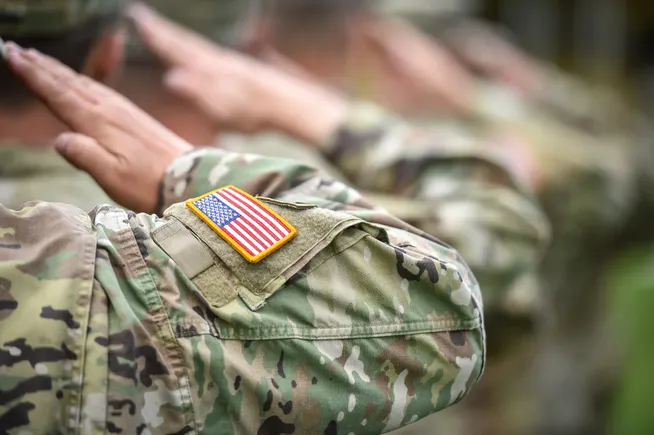Military veterans bring leadership and adaptability skills that make them strong candidates for a number of construction roles, panelists said during a Skanska and the Society of American Military Engineers event last week, moderated by Construction Dive Editor Zach Phillips.
Panelists agreed veterans are well-suited for roles such as superintendent, project engineer and safety manager. Their operational skills also allow these candidates to ultimately advance quickly in their careers despite little prior construction experience, according to retired Capt. Patrick Jones, managing director of Fort Worth, Texas-based Proteus Recruiting.
That’s especially critical in the face of a persistent labor shortage.
The event built on the industry’s ongoing search for skilled labor, particularly how veterans can help bridge construction’s talent gap through leadership and operational experience gained in service. The conversation highlighted growing efforts by construction firms to formalize veteran pipelines through mentorship, tailored onboarding and internal support networks.
Panelists said veterans thrive in construction because the environment echoes the military with mission-driven tasks amid a constantly changing environment.
“You just replace the map with a set of plans and it’s the same type of challenge,” said retired Col. Aaron Reisinger, president of construction and government services at Sevan Multi-Site Solutions, a Downers Grove, Illinois-based construction company. “How do you integrate a whole bunch of people from different skill sets, different backgrounds, to achieve whatever it is right in front of you?”
Unlike conventional entry-level hires, veterans often arrive with field-tested soft skills such as problem solving, small-unit leadership and logistical coordination. Those skills are often more difficult to teach than technical construction skills, said Jones.
That’s why rather than relying solely on college recruiting, he recommends firms should consider veterans as a parallel pipeline for field leadership roles.
“The majority of candidates that we place in the construction industry don’t come from construction backgrounds,” said Jones. “They’re oftentimes just strong field leaders with strong integrity, work ethic, drive that want to build their next career.”
But challenges still remain, especially around unfocused transitions, said 1st Lt. Neil Moloney, environment, health and safety manager at Skanska. That’s why a progression plan is needed to provide structure for the service member in the civilian career after they’ve left the very structured military, he said.
“For me, one of the reasons why I came back to Skanska following deployment was because of everything that Skanska provided me during the deployment,” said Moloney. “In conjunction with the office and the veterans working group, they sent me 16 boxes of treats from home, which came in at a great time, because we had just returned from a mission that we were gone for two weeks.”
Capt. Sharon Douglas, owner and president of Potere Construction, a Fort Worth-based construction company, said she faced barriers breaking into the industry as a woman and now tries to open doors for others, including veterans.
“The invitation to be in this type of field was not there,” said Douglas. “As far as being flexible, the military talks a lot about that, we became stronger mentally to endure changes. And if you guys have ever been on a design-build project, there’s always things that are changing. It may say one thing on their drawing, but it may not fit the field.”
Job-based training
Panelists added that while leadership and flexibility often carry over, the lack of familiarity with businesses-side concepts can still leave veterans at a disadvantage. That gap can be addressed through upfront training and mentors who understand both worlds.
“Those all types of things are things you have to reground yourself in. It’s going back to digging foxholes,” said Reisinger. “But as long as you bring those hard, strong, well developed work ethic, trust and commitment to that technical skill development, that stuff happens real fast.”
Veterans may not know industry terminology, project workflows or how to operate within a profit-and-loss environment. A short crash course or jobsite exposure before hiring can make a big difference, said Moloney, as well as providing a blueprint for career advancement.
“[Veterans] want to know what the next step is, where do I see my progression in a year to three years?” said Maloney.
To improve retention, firms need structured support, including defined promotion pathways and mentorship. In other words, panelists agreed firms must take a proactive approach.
“Doing 30-, 60-, 90-day check-ins with new veteran hires is really helpful, you don’t want a veteran that comes in without background to feel like they’re on an island to themselves,” said Jones. “It’s easier to teach construction than it is to teach someone to be a leader.”
